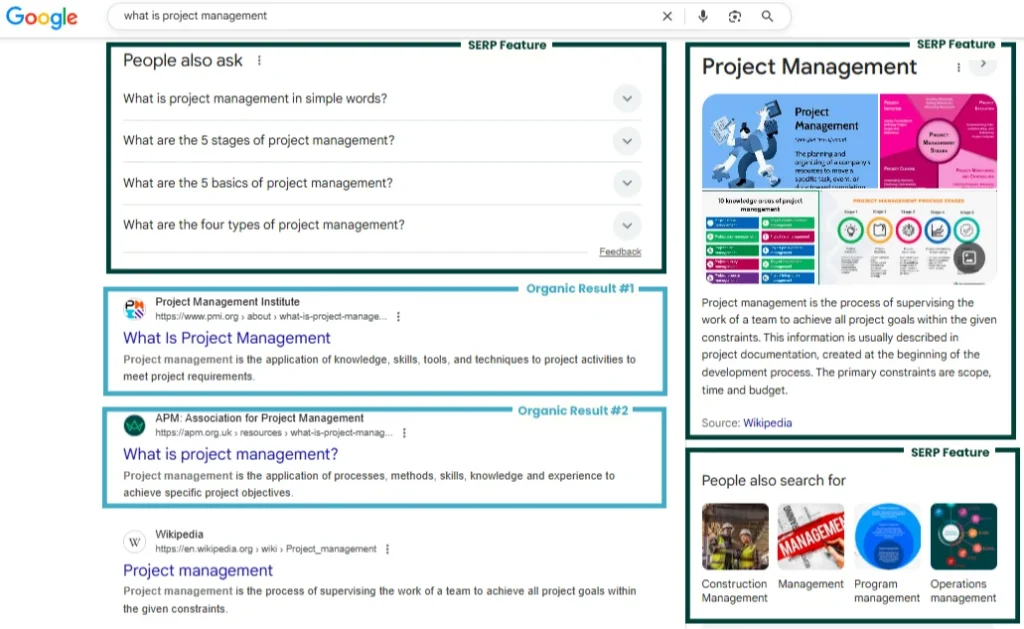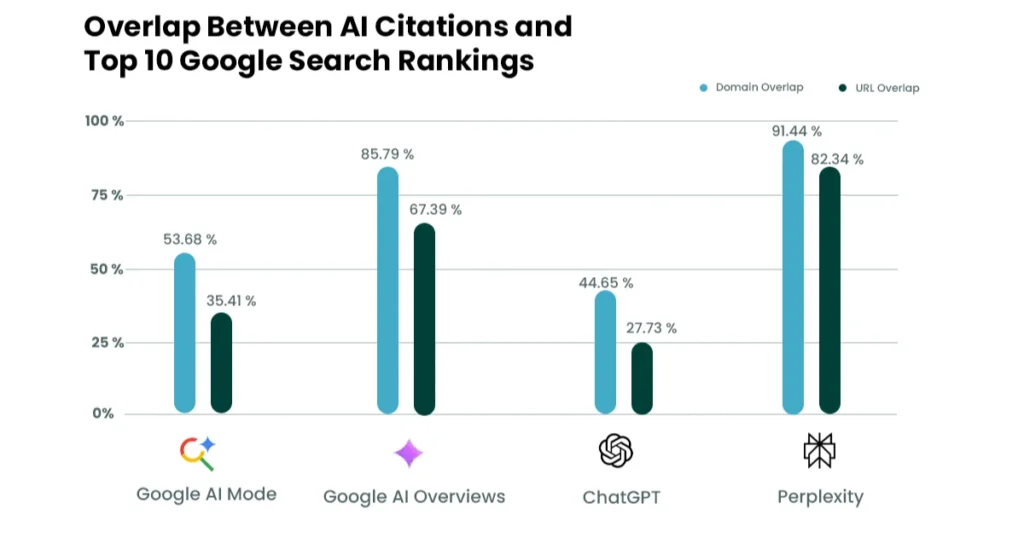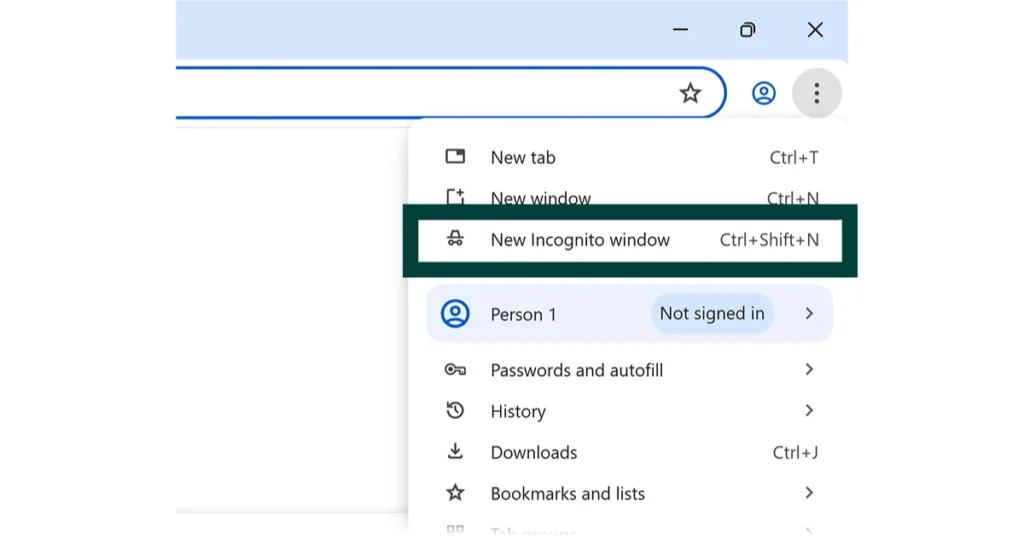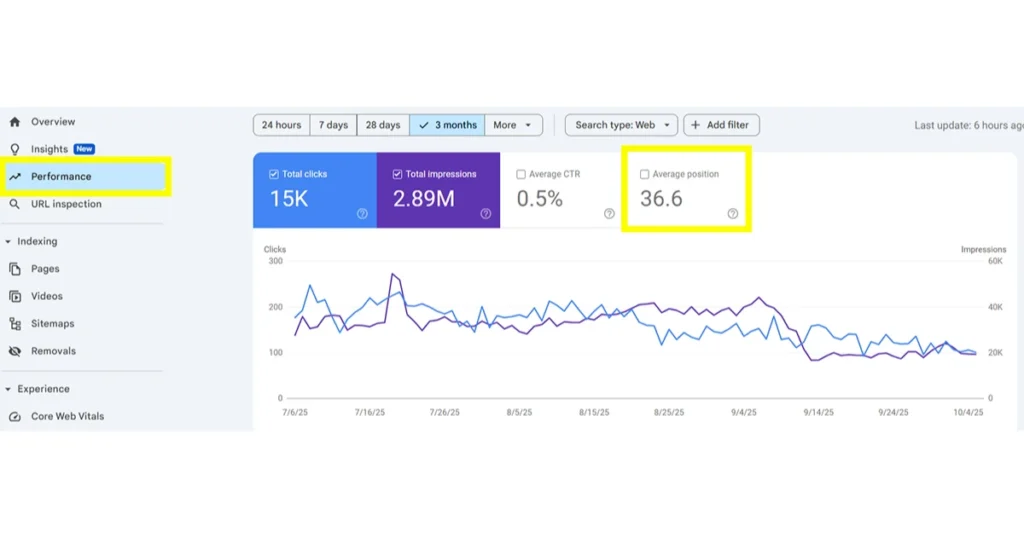Keyword rankings form the backbone of every SEO strategy. They represent how visible your website is in search engines and directly influence how much organic traffic you receive. Without strong rankings, even the most well-designed website may go unnoticed by potential customers. As digital competition intensifies in 2025, tracking keyword rankings has become more important than ever.
By monitoring keyword rankings, you can measure whether your SEO efforts are paying off, pinpoint areas for improvement, and discover new opportunities for growth. A single rise from page two to page one of Google can mean a huge boost in clicks and conversions. Therefore, businesses that want to maintain authority and relevance online must learn how to track, interpret, and improve keyword performance effectively. With the support of professional SEO services, companies can streamline this process, gain expert insights, and maximize their visibility in search results.
What Are Keyword Rankings?

Keyword rankings are essentially the digital scoreboard for your website’s performance in search results. They determine how easily your target audience can find you when they search for relevant topics, products, or services. A high-ranking page is more likely to earn traffic, engagement, and conversions.
For example, websites ranking in the top three positions account for the majority of all organic clicks. A small improvement, such as moving from position 10 to position 5, can drastically increase visibility. This demonstrates why keyword rankings are one of the most critical metrics in SEO success.
Why Are Keyword Rankings Important in 2025?
In 2025, search behavior continues to evolve with the rise of voice assistants, AI-driven search tools, and zero-click results. Still, keyword rankings remain the primary driver of online visibility. Ranking highly ensures that your business shows up not only in traditional search results but also in AI-generated answers and voice-based queries.
Strong keyword rankings also provide credibility. Users often perceive websites that appear at the top of search results as more trustworthy and authoritative. For businesses competing in crowded industries, maintaining visibility at the top of SERPs can be the difference between gaining new customers and losing them to competitors.
Traditional Search Engines Still Outpace AI Tools
Although AI platforms and chatbots are rapidly growing in popularity, traditional search engines like Google remain dominant. Billions of searches are still conducted daily, and most customer journeys begin with a search query. Businesses cannot afford to ignore keyword rankings if they want to capture this massive pool of potential traffic.
By ranking high on Google, you position yourself where most customers begin their buying journey. Even with AI integration, top results in search engines continue to act as the foundation for digital success.
High Keyword Rankings Often Correlate with High AI Visibility
AI tools frequently pull answers from high-ranking websites. This means that if your site already performs well in SERPs, you’re more likely to be featured in AI-generated answers. As a result, keyword rankings now extend their influence beyond Google and play a role in how visible your business is across multiple platforms.
By investing in SEO and achieving higher rankings, you maximize your chances of being cited by AI tools, which expands your reach and authority even further.

How to Check Google Keyword Rankings
Monitoring keyword rankings can be done in several ways. Each method varies in accuracy, depth, and convenience. Whether you’re just starting out or running advanced SEO campaigns, it’s crucial to find the right tools and methods for your needs.
Track Manually Using Incognito Mode
One of the simplest ways to check rankings is to search for your keywords in an incognito window. This removes personalization factors like browsing history, giving you a more objective view of your rankings. However, this method is limited, as it doesn’t account for location or device differences and can become time-consuming when tracking multiple keywords.

Use Google Search Console
Google Search Console (GSC) is a free and reliable tool for tracking keyword performance. It provides detailed reports on search queries, impressions, average positions, and click-through rates. With this data, you can identify which keywords are driving traffic and where optimization is needed. GSC also helps uncover hidden keyword opportunities you may not have targeted intentionally.

Use a Dedicated Keyword Rank Checker
For businesses managing large SEO campaigns, dedicated tools like SEMrush, Ahrefs, and Moz are indispensable. These platforms offer real-time ranking data, competitor analysis, and SERP tracking features. They allow you to monitor rankings across multiple devices and locations, providing a comprehensive view of your SEO performance.
How to Interpret Changes in Keyword Rankings
Keyword rankings fluctuate constantly. Not every change should alarm you, but consistent patterns should be monitored closely. For example, a sudden drop may indicate a Google algorithm update, while a slow decline might mean your content is outdated or competitors are outperforming you.
It’s also important to consider seasonality. Keywords like “Valentine’s Day gifts” will naturally rise and fall depending on the time of year. Rather than focusing on daily shifts, analyze trends over weeks or months to get an accurate picture of your keyword performance.
5 Ways to Improve Your Keyword Rankings
Improving keyword rankings requires a balanced mix of creating valuable content, aligning with user intent, building authority, and ensuring your website is technically sound. SEO is no longer about stuffing keywords, it’s about building a trustworthy online presence that both users and search engines find valuable. Below are five proven methods to boost your visibility and climb higher in search engine results pages (SERPs).
1. Create Better Content Than What’s Currently Ranking
Content is the foundation of SEO. To outperform competitors, you must study the top-ranking pages for your target keywords and determine what they are doing well, and where they fall short. Then, create content that is more comprehensive, engaging, and actionable.
Adding visuals like infographics, charts, and videos enhances user experience and helps your page stand out. Content that is well-structured with clear headings, examples, and step-by-step instructions is more likely to keep users engaged. Google rewards content that provides depth, accuracy, and clear solutions to user queries.
Tips to create better content:
- Conduct competitor analysis to find gaps in coverage.
- Include examples, case studies, or statistics for credibility.
- Use multimedia elements such as images, charts, or videos.
- Organize content with headings and bullet points for readability.
2. Satisfy Search Intent
Search intent refers to the underlying goal behind a search query. Google prioritizes content that matches intent, whether informational, navigational, transactional, or commercial. If your page doesn’t meet user expectations, it’s unlikely to sustain high rankings.
For instance, if a user searches for “best budget smartphones 2025,” they expect a list of current product recommendations, not a generic definition of what a smartphone is. Creating content that delivers exactly what the searcher wants helps reduce bounce rates and improves engagement, both of which signal to Google that your page deserves higher rankings.
Ways to match search intent:
- Identify whether the keyword is informational, transactional, or navigational.
- Study the current SERPs to understand what users expect.
- Align your content format (guide, list, product page) with user needs.
- Provide clear, actionable answers rather than vague explanations.
3. Refresh Your Content Periodically
Content that was valuable two years ago may be outdated today. Search engines and users both prefer fresh, up-to-date information. Regularly revisiting old articles and updating them with current data, examples, or improved formatting keeps your website competitive.
Refreshing content also gives you an opportunity to optimize for new keywords, add internal links, and improve readability. Even minor updates, like refining meta descriptions or improving load speed, can have a positive impact on rankings.
Best practices for refreshing content:
- Add updated statistics, facts, or research.
- Replace outdated screenshots or visuals.
- Expand sections that lack depth or detail.
- Optimize for new long-tail keywords discovered in search trends.
- Re-promote updated content through social media or newsletters.
4. Build High-Quality Backlinks
Backlinks remain one of the strongest ranking signals in SEO. A backlink from a reputable website tells search engines that your content is trustworthy and authoritative. However, not all backlinks are created equal, quality matters far more than quantity.
To earn high-quality backlinks, focus on building relationships within your industry and creating content that people naturally want to share. Guest blogging, publishing original research, and contributing to industry discussions can help you acquire valuable links. Avoid black-hat tactics such as buying links, as they can lead to penalties.
Effective strategies for link building:
- Publish original studies or data others will cite.
- Contribute guest posts on high-authority sites.
- Create shareable resources like guides or infographics.
- Build relationships with influencers and bloggers in your niche.
- Engage in digital PR campaigns to earn media mentions.
5. Improve Your Site’s Technical SEO
Even the best content won’t rank if your site has technical issues. Technical SEO ensures that search engines can easily crawl, index, and understand your website. It also improves user experience, which directly impacts engagement and rankings.
Fast-loading pages, mobile responsiveness, secure HTTPS, and proper site architecture are essential. Adding structured data (schema markup) helps search engines better interpret your content and can increase your chances of earning rich snippets in SERPs.
Key areas of technical SEO to focus on:
- Optimize page speed by compressing images and minimizing code.
- Ensure mobile-friendliness across all devices.
- Fix crawl errors, broken links, and duplicate content.
- Implement HTTPS for security and trustworthiness.
- Use schema markup to enhance search result visibility.
By combining these five strategies, you build a well-rounded SEO approach that enhances your keyword rankings. Strong content, alignment with user needs, ongoing updates, authoritative backlinks, and solid technical foundations all work together to deliver long-term results.
Take Charge of Your Keyword Rankings
Keyword rankings remain one of the most reliable indicators of SEO success in 2025. By tracking your performance, understanding fluctuations, and applying proven strategies, you can increase visibility, drive qualified traffic, and grow your business online.
At The Maddex, we specialize in helping businesses track, analyze, and improve keyword performance. From technical SEO to content optimization and backlink strategies, our team ensures you stay ahead of the competition. Partner with us to boost your keyword rankings and achieve long-lasting SEO success.


